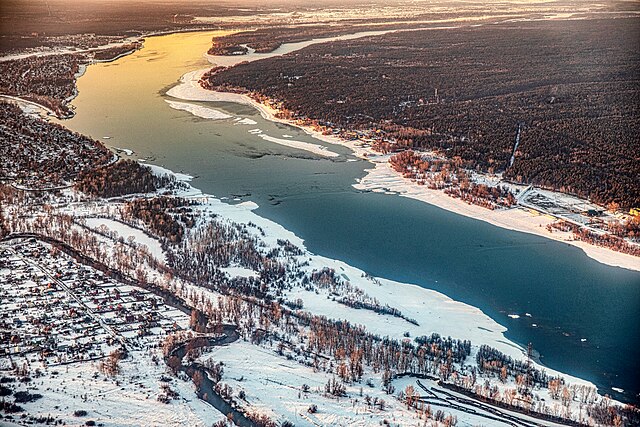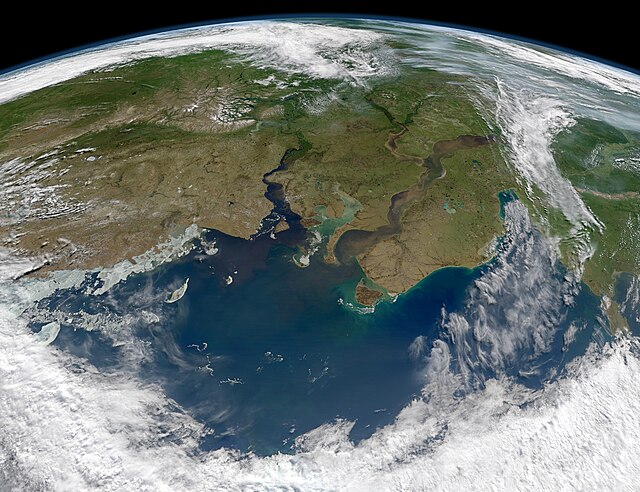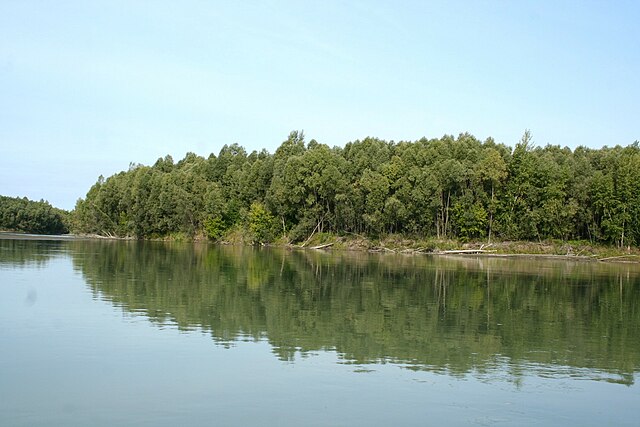The Ob is a major river in Russia. It is in western Siberia, and with its tributary the Irtysh forms the world's seventh-longest river system, at 5,410 kilometres (3,360 mi). The Ob forms at the confluence of the Biya and Katun which have their origins in the Altai Mountains. It is the westernmost of the three great Siberian rivers that flow into the Arctic Ocean. Its flow is north-westward, then northward.
The Ob in Novosibirsk
Yenisei and Ob (right) flow into Kara Sea
The Ob River in Barnaul
A section of the Ob River
Siberia is an extensive geographical region comprising all of North Asia, from the Ural Mountains in the west to the Pacific Ocean in the east. It has formed part of the sovereign territory of Russia and its predecessor states since the centuries-long conquest of Siberia, which began with the fall of the Khanate of Sibir in the late 16th century and concluded with the annexation of Chukotka in 1778. Siberia is vast and sparsely populated, covering an area of over 13.1 million square kilometres (5,100,000 sq mi), but home to roughly a quarter of Russia's population. Novosibirsk, Krasnoyarsk, and Omsk are the largest cities in the area.
Horseman hunting, with characteristic Xiongnu horse trappings, southern Siberia, 280–180 BCE. Hermitage Museum.
Chukchi, one of many Indigenous peoples of Siberia. Representation of a Chukchi family by Louis Choris (1816)
Siberian Cossack family in Novosibirsk
View from Haiyrakan mountain, Tuva








